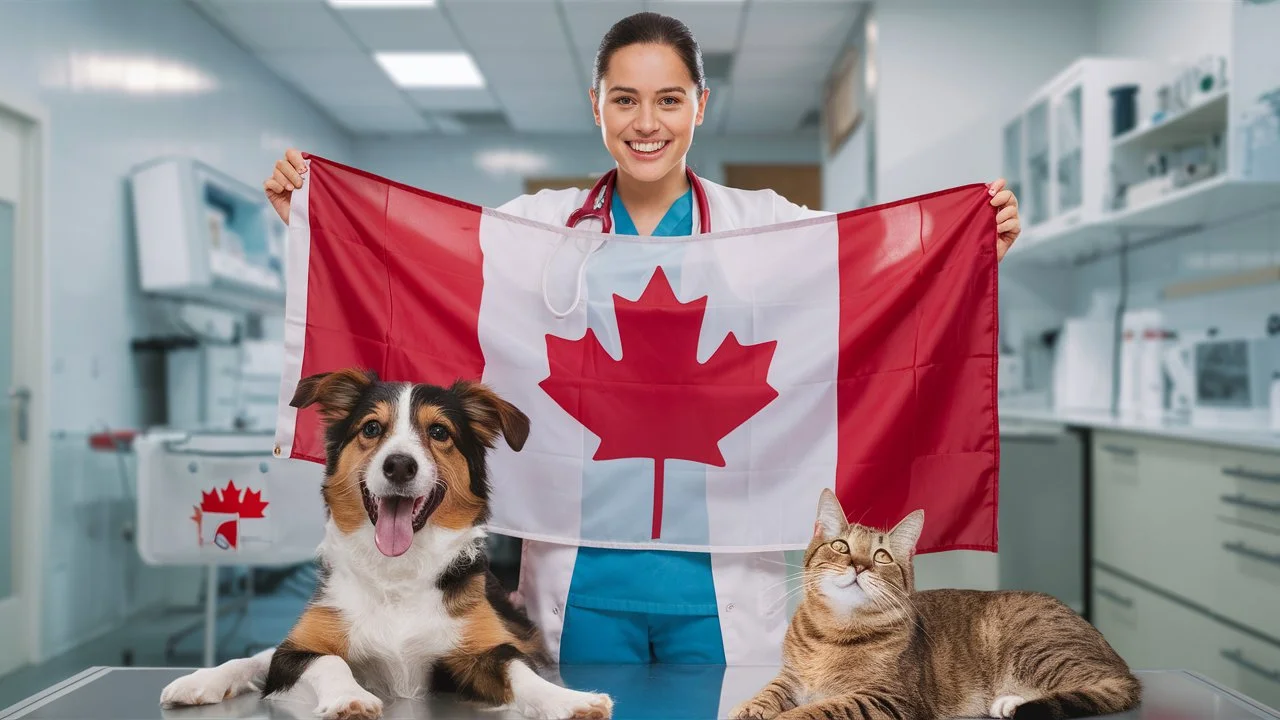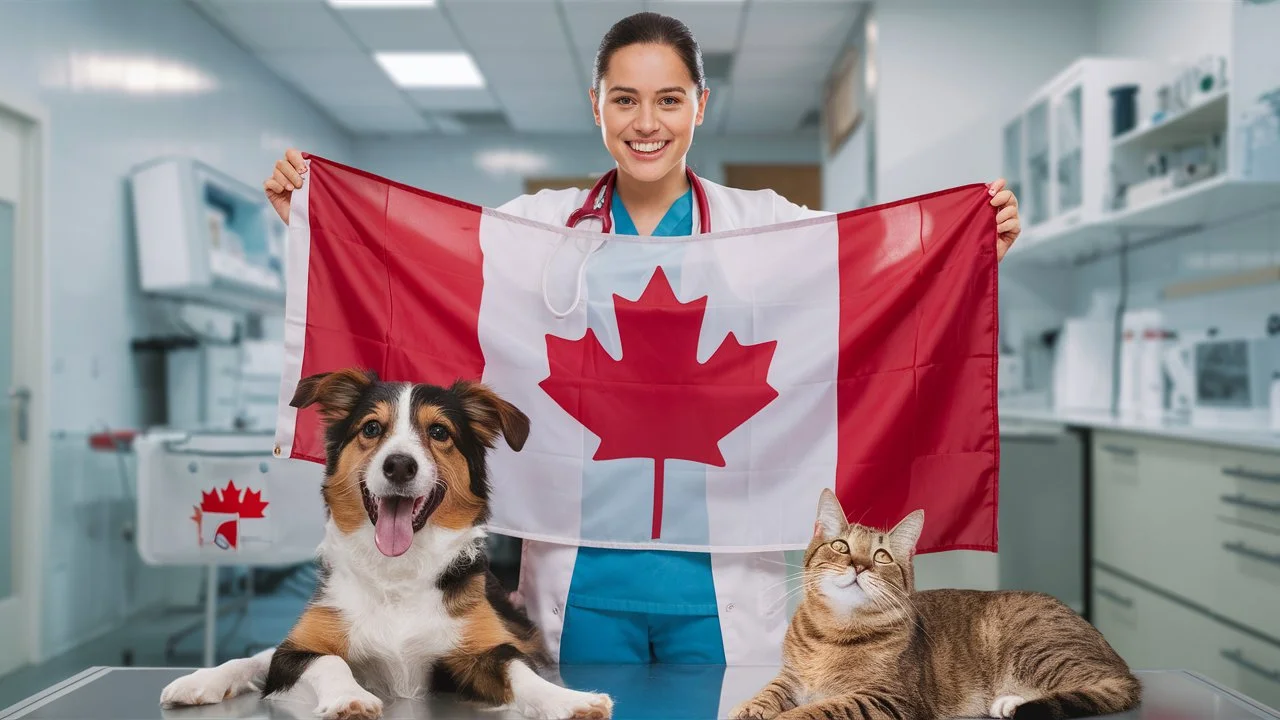


According to reports from the Canadian Veterinary Medical Association (CVMA), there is a growing shortage of veterinarians in Canada. Among many reasons, one of the main reasons is that employers in the veterinary sector face challenges in attracting skilled professionals. The number of students graduating each year is not proportionate to the labour shortages. This imbalance is expected to persist, with demand for veterinarians outstripping supply, creating significant career opportunities for qualified professionals.
From 2024 to 2031, the shortage of veterinarians is expected to continue, with an estimated 5,000 job openings. Alarmingly, there will be only around 4300 qualified workers to fill that vacancy. Additionally, federal projections indicate an extra shortfall of 700 veterinarians by 2031.
What else to say! If you are dreaming of settling in Canada, this is the right time for veterinarians from India to prepare to migrate to Canada.
In this article, we will delve into the opportunities available for veterinarians in Canada, the steps to immigrate, and how to take advantage of this high demand.
The National Occupational Classification (NOC) is a standardized system the Canadian government uses to categorize and describe all occupations in the labour market.
Every occupation has a unique code, which helps to organize job titles and job descriptions for purposes such as immigration, job search, and employment statistics. The NOC system is crucial for matching job seekers with employers, ensuring both parties understand the qualifications and duties of various positions.
Veterinarians in Canada are classified explicitly under NOC code 31103. This code recognizes veterinarians for their crucial role in animal healthcare and requires them to meet specific education, certification, and licensing standards. They can work in private practice or animal clinics, farms, laboratories, government agencies, or industries in Canada by meeting all the requirements.
You must meet the general Canada PR eligibility requirements and then fulfill the following criteria to become eligible for a veterinarian job in Canada:
Province/Territory | Regulatory Body |
Alberta | Alberta Veterinary Medical Association (ABVMA) |
British Columbia | College of Veterinarians of British Columbia (CVBC) |
Manitoba | Manitoba Veterinary Medical Association (MVMA) |
New Brunswick | New Brunswick Veterinary Medical Association (NBVMA) |
Newfoundland and Labrador | Newfoundland and Labrador Veterinary Medical Association (NLVMA) |
Nova Scotia | Nova Scotia Veterinary Medical Association (NSVMA) |
Ontario | Ontario Veterinary Medical Association (OVMA) |
Prince Edward Island | Prince Edward Island Veterinary Medical Association (PEIVMA) |
Quebec | Ordre des médecins vétérinaires du Québec (OMVQ) |
Saskatchewan | Saskatchewan Veterinary Medical Association (SVMA) |
It is the fastest immigration pathway for immigrants residing anywhere in the world. The Canadian government manages the online stream to attract and retain skilled workers in Canada.
Based on your age, educational credentials, experience, language skills and other factors, you will earn a high Comprehensive Ranking System (CRS) score. All these factors greatly influence your chances of receiving an invitation to apply for permanent residence.
You may consult an authorized immigration consultant or lawyer to assess your eligibility. For more assistance, you can contact us directly for a free consultation.
In a nutshell, the process includes:
If you are opting for Category-Based Selection, you need the following to qualify:
Work Experience:
Provinces/ territories in Canada can nominate skilled workers to fill vacancies based on their specific labour needs and economic priorities. The PNP helps address regional labour shortages by attracting qualified workers and professionals, including those in high-demand professions like veterinarians. Eventually, this will lead to permanent settlement and contribute to the local economies of that specific province/territory in Canada.
The Provincial Nominee Program (PNP) is an ideal pathway if you prefer to live and work in a specific Canadian province. You can apply through the PNP of your chosen province. Each PNP has unique criteria that can increase your chances of receiving a provincial nomination.
Several Canadian provinces have a high demand for qualified veterinarians. Let us explore some of the popular PNPs for Veterinarians:
Veterinarians in Canada can earn an average annual income of around $98,364, which equates to approximately $50.44 per hour. The yearly income of junior veterinary positions, especially international professionals, can be up to $64,807. However, for veterinarians with extensive experience or in senior roles can earn up to $137,500 annually.
Category | Annual Salary | Hourly Salary |
Average Income | About $98,364 | Roughly $50.44 |
Average Income for International Junior Veterinarians | Up to $64,807 | - |
Average Income for Experienced and Senior Veterinarians | Up to $137,500 | - |
All these figures show that veterinarians in Canada enjoy competitive salaries that reflect their expertise and experience. Whether you are at entry level or a seasoned professional, the veterinary field in Canada offers promising financial rewards and opportunities for growth.
ImmiLaw Global is ready to provide comprehensive assistance in navigating the various immigration paths available for veterinarians in Canada. From creating Express Entry profiles to choosing Provincial Nominee Programs and visa processes, we offer guidance tailored to individual needs.
Contact us to build a solid career and sail a smooth immigration journey to Canada.
Read to Know: Latest Express Entry Draw Issues 3,750 ITAs Targeting Healthcare Occupations